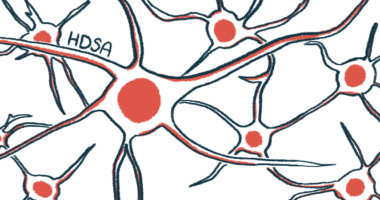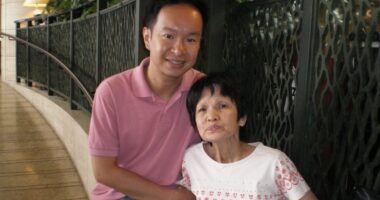Sometimes Love Means Letting Go

Two weekends ago, my wife, Jill, and I said goodbye to our daughter, Alexus, son-in-law, René, and their cats as they headed back home to Boston.
Because remote work is now common during the pandemic, Alexus and her husband were able to spend December and early January with us and work from our home in Maryland.
When they arrived, they had four feline companions. (To say that my daughter loves cats is an understatement.) They left with five.
Here’s what happened.
We inherited Oreo when we moved into our new home last year after the owner left him behind. We were willing to take care of him because he’s so cute.
But right away, we noticed two problems. Every time he rubbed against Jill’s skin, she got hives. And Oreo seemed to have severe allergies as well. He constantly had a runny nose and wheezed and sneezed a lot.
Jill isn’t working right now, so we can’t afford veterinary bills. Because Oreo is so affectionate and fit right in with Alexus’ cats, she and René instantly fell in love with him. He frequently cuddled with each of them while they watched television, and at night, he started sleeping in their bed with the other cats.
Alexus and René also felt bad about his labored breathing, so they took him to a veterinarian, who discovered a bacterial infection and put him on antibiotics.
As we sat down for dinner one night, Jill wondered if Alexus wanted to take Oreo home with her. Alexus knew how attached Jill was to him, so she asked if that would upset her.
“Yes,” Jill said with tears in her eyes. But she knew the cat wouldn’t get the same love, care, and attention he deserved by continuing to live with us.
I was surprised, because despite the frequent hives, Jill loved Oreo’s sweet presence. Later that night, she told me that doing what was best for the cat was more important than what made her happy.
She also wanted me to understand that as her Huntington’s progresses, she probably won’t be able to verbalize what’s wrong with her. I’ll need to pay close attention to her health, like Alexus and René did with Oreo.
Infections can cause a lot of issues for both cats and people. When Jill’s dad, who also had Huntington’s, got an infection, his mood changed. He fell more often and would be more confused than normal. If Jill gets to a point where she isn’t safe, she said I’ll need to make sure that she’s in the best place for her health, whether it’s at home, in the hospital, or in a care facility.
It will be my job to make sure she’s as healthy as possible and in the safest environment, just like Oreo is now.
That’s the thing about love. Jill loved Oreo so much that she let him go so he could get the care he needed, even though she preferred to be with him. I love Jill so much that I may have to do the same for her one day.
Note: Huntington’s Disease News is strictly a news and information website about the disease. It does not provide medical advice, diagnosis, or treatment. This content is not intended to be a substitute for professional medical advice, diagnosis, or treatment. Always seek the advice of your physician or other qualified health provider with any questions you may have regarding a medical condition. Never disregard professional medical advice or delay in seeking it because of something you have read on this website. The opinions expressed in this column are not those of Huntington’s Disease News or its parent company, Bionews, and are intended to spark discussion about issues pertaining to Huntington’s disease.








Chris stecker
I love reading these stories. My dad didn't really talk about the Huntington's and I didn't pay a huge amount of attention to my grandmother. My sister has been diagnosed and I am holding out due to insurance (my line of work) but I feel it, the airheadness and balance issues. The current doctor here in KC says you either have the symptoms all the time or you don't have Huntington's (not sure how that quack got in charge). Anyway, any information you've been providing is super helpful and you are appreciated! Thank you so much! (Hope I haven't told you the same thing previously, but you already know the drill.)
Carlos Briceño
Hi, Chris,
Thanks for your kind words. A lot of people used to not talk about HD, but I'm glad more people are today. I hope what I write and share continue to help you with knowledge, with courage and with hope that you are not alone.
Manu Sione
Thank you Carlos for your article. My wife has all the symptoms and deterioration signs of HD but has never been tested (mainly because of insurance). Her younger sister has been tested and she is gene-positive. Our two children are still deciding on getting tested but they are closer to that decision and more informed of HD than my wife or I have ever been. I and our kids have been looking after their mum/my wife and we do love it, most of the times. However I have to think about the kids getting on with their own lives now, rather than seeing their mother deteriorate further. Family say it is too hard doing all the care giving by yourself but I don't see it that way because I love her. I know going into a care home is inevitable but I want her to be at home for as long as possible.
Carlos Briceño
Manu,
Thanks for what you shared. I know what it's like to have family members be gene positive, so I feel for you as you deal with all the issues that HD presents to family members who are related to each other. I hope you are taking one day at a time and know that the HD community is there for you any time you need to share or vent.